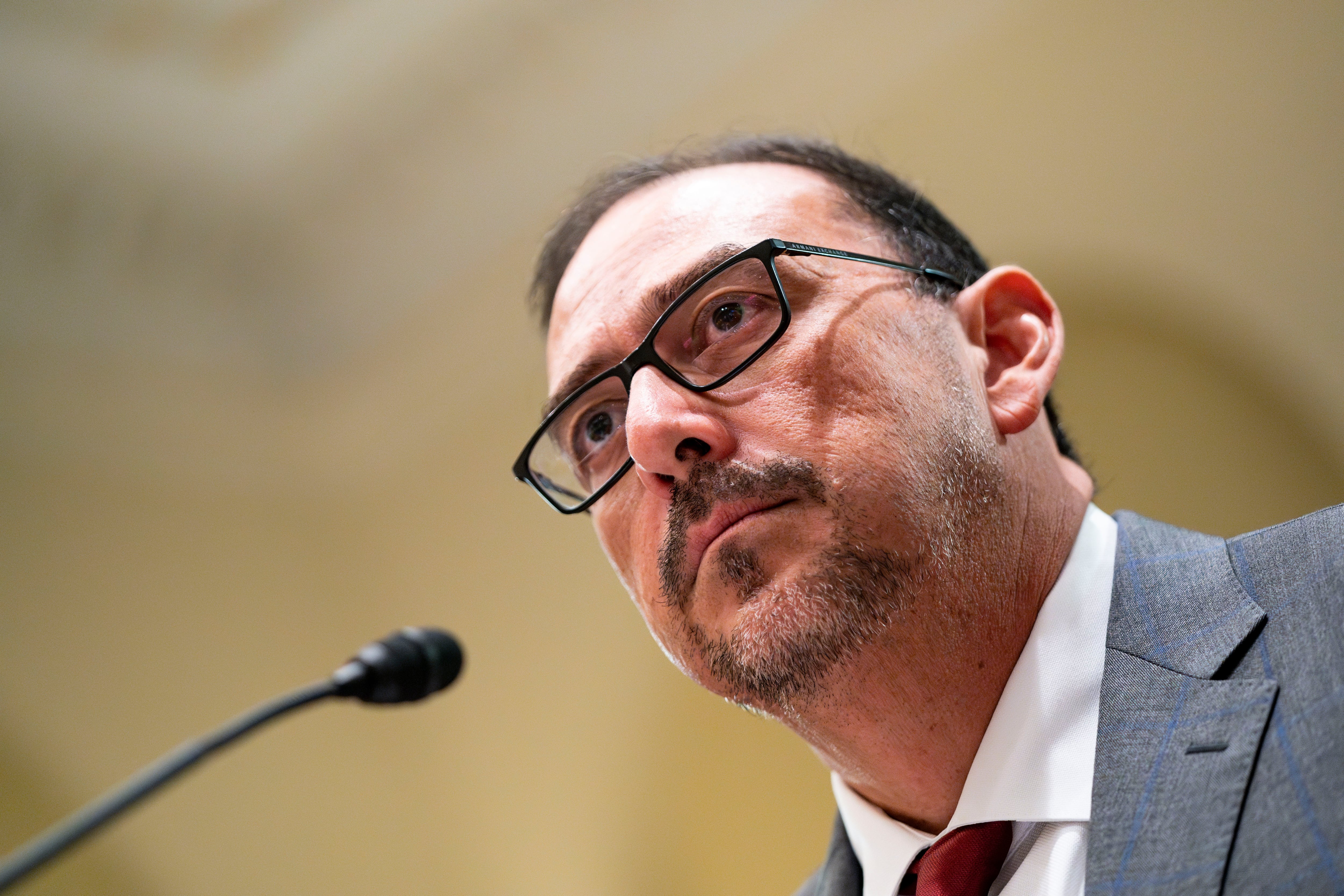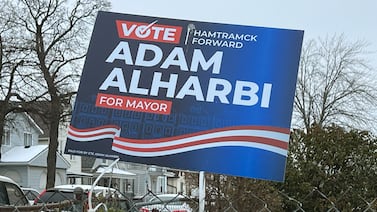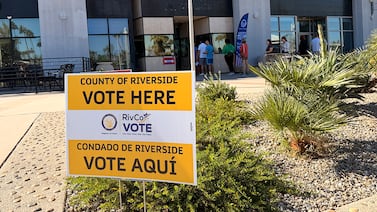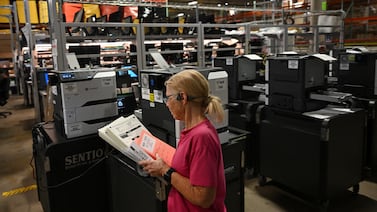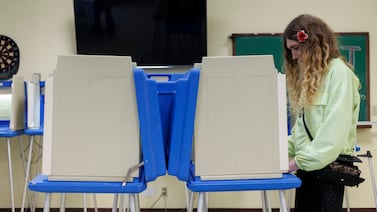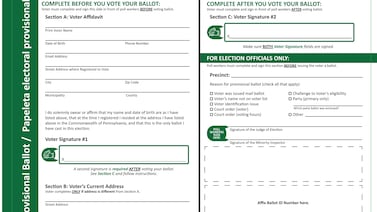Votebeat is a nonprofit news organization reporting on voting access and election administration across the U.S. Sign up for Votebeat Arizona’s free newsletter here.
Update, 2:30 p.m. Sept. 17: The Maricopa County Recorder’s Office filed an emergency petition asking the Arizona Supreme Court to rule on whether the voters affected by this problem should be required to provide documented proof of citizenship before the November election in order to vote a full ballot.
The eligibility of nearly 100,000 registered voters in Arizona is up in the air because of an error in state systems uncovered just before the scheduled sending of mail ballots, Secretary of State Adrian Fontes announced on Tuesday.
The state incorrectly marked these voters when they registered to vote as already having provided documented proof of U.S. citizenship, when really, it’s unclear whether they have, Fontes said.
The error stems from the way the Motor Vehicle Division provides driver’s license information to the state’s voter registration system. The voters affected by this particular error are people who first obtained their Arizona driver’s license before October 1996 and then were issued a duplicate replacement before registering to vote sometime after 2004, according to Fontes.
Arizona’s unique laws have required proof of U.S. citizenship to vote in state and local elections since 2005. That means, if these voters have not provided the proof, they should be registered as what Arizona calls “federal only” voters and be allowed to vote only for president and Congress.
It’s unclear why no one noticed the error sooner, Fontes said, but it’s been occurring for roughly two decades and over four administrations.
Gov. Katie Hobbs, who, like Fontes, is a Democrat, says she has ordered the Motor Vehicle Division to fix the problem and is ordering “an independent audit to ensure that MVD systems are functioning as necessary to support voter registration.”
Fontes said a Maricopa County worker flagged the problem after finding a person on the county’s voter rolls who hadn’t provided proof of citizenship, but was added to the rolls as a full-ballot voter. It turned out the person had a green card and wasn’t eligible to vote at all, Fontes said.
That person had never cast a ballot, Fontes said.
Maricopa County Recorder Stephen Richer in a statement confirmed his team had flagged the problem.
The discovery comes as Republicans increasingly press concerns about the potential for noncitizens to cast ballots in federal elections. There is no evidence of widespread noncitizen voting, and experts say such cases are extraordinarily rare. Federal law requires voters to attest to being a U.S. citizen under penalty of perjury when registering to vote, but does not require documents proving it. Noncitizens who try to vote risk prison time, loss of residency status, and deportation.
Congressional Republicans are pushing for the passage of legislation that would require documented proof of citizenship to vote in federal elections, as Arizona does for state elections, and former President Donald Trump has said Republicans should be willing to shut down the federal government to get it passed.
Arizona, a swing state where statewide races can be decided by just a few hundred votes, is under exceptional scrutiny in this year’s presidential election.
Time is short: Ballots must go out soon
The state isn’t sure what to do next, now that it knows it may not have proper documentation on file for these voters, and time is short. County officials must send out ballots to military and overseas voters on Thursday, and mail ballots go out in less than a month.
Maricopa County confirmed it will file a so-called friendly lawsuit in the Arizona Supreme Court on Tuesday asking a judge to quickly order Fontes’ office to allow the voters whose records are in doubt to vote for federal offices, but not for state and local elections. Fontes said his office will argue that the voters should remain full-ballot voters.
“We do not want to see this happen,” Fontes said about the potential of limiting these voters, “We are advocating for status quo.”
The roughly 97,000 voters who were incorrectly marked in the state’s voter rolls lean more heavily Republican, Fontes said, and many are between 45 and 60 years old.
The error with these voters’ registrations occurred because of the way the Motor Vehicle Division categorizes driver’s licenses when sending them to the voter registration system.
Since October 1996, Arizona residents have had to provide proof of U.S. citizenship to get a regular driver’s license, and noncitizens such as green card holders have been issued a different type of license. Before that, there was no such differentiation.
Drivers licenses in Arizona can remain valid for decades without having to be renewed, an unusually long time. As long as the person lives in the state, their license remains valid until the driver turns 65, then can be renewed every five years.
That means that many people who were issued a driver’s license before October 1996 still have the same license today.
Ever since the proof of citizenship law for voter registration was enacted in 2004, when county officials get a new voter registration with a driver’s license number on it, they look at the date that a license was issued. If the date is after October 1996, they know that the person has already provided the state with documented proof of citizenship.
But what officials didn’t know is that the Motor Vehicle Division was changing the issuance date on the license if someone requested a replacement card or updated their card in another way, such as changing their address. That means that when someone who had obtained such a replacement license registered to vote, the election officials looking at the license issuance date would see a post-1996 date and believe the voter had provided documented proof of citizenship to obtain the license, even if they hadn’t.
Those voters were then marked as full-ballot voters, even though the state hadn’t actually checked to see if further documentation existed.
Jen Fifield is a reporter for Votebeat based in Arizona. Contact Jen at jfifield@votebeat.org.

